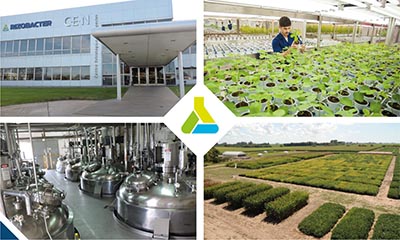This is our first news of 2019 so we hope you all enjoyed a good break and wish you all a peaceful, productive and enjoyable year ahead. We’re now in the last six months of funding from the Bill & Melinda Gates Foundation. Our N2Africa teams in Ethiopia, Ghana, Nigeria, Tanzania and Uganda have been very busy conducting a large survey to understand the outcomes and impacts of the programme. We’re using a variety of methods and will report more in detail in future Podcasters.

 Rizoliq Soy, a liquid rhizobia inoculant for soybean with the highest quality standards recently gained approval by local authorities to be commercialized in Tanzania. Behind this achievement is a recent public-private partnership between Rizobacter and IITA Tanzania, mediated by N2Africa. Through this accomplishment the firm continues to strengthen its position in Africa.
Rizoliq Soy, a liquid rhizobia inoculant for soybean with the highest quality standards recently gained approval by local authorities to be commercialized in Tanzania. Behind this achievement is a recent public-private partnership between Rizobacter and IITA Tanzania, mediated by N2Africa. Through this accomplishment the firm continues to strengthen its position in Africa.